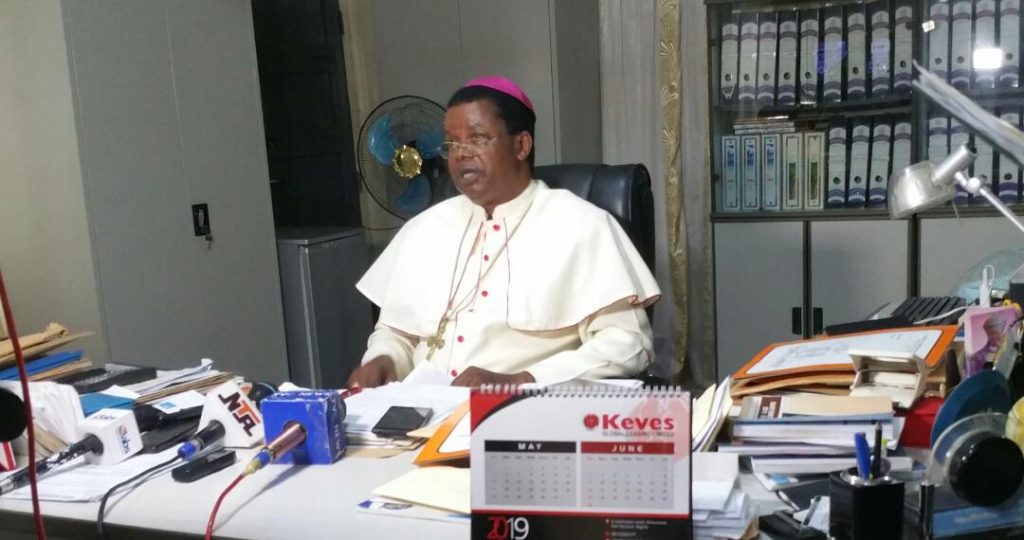As President Mohammadu Buhari mounts the saddle of leadership as the country’s President for the next four years today, the Catholic Bishop of Awka Diocese, Most Reverend Paulinus Ezeokafor, among other things, raised concern over the recent directive and consequent withdrawal of gun licenses and banishment of all forms of guns by the federal government in Nigeria.
The Catholic Prelate raised the concern while exchanging views with news men at Saint Patrick’s Catholic Cathedral, Awka on the State of the Nigerian Nation.
Bishop Ezeokafor, who emphasized that the law of self defence is still in existence, noted that the move is unacceptable as it will make Nigerian citizens defenseless, recalling that a similar thing happened in Rwanda that eventually led to crisis and prayed that it doesn’t happen in Nigeria.
While advocating f state police and restructuring of the country where regions are allowed to control their resources and report to the centre as obtainable in other parts of the modern world, Bishop Ezeokafor decried the decision of the federal government to allegedly fund the Miyetti Allah group with one hundred million dollars as well as the establishment of a special radio station where language of communication will only be fulfulde, describing it as segregation.
He further advised the President to see the country as secular, rather than divided across religious or tribal lines, pointing out that it is very expedient to develop the Niger Delta Region, which he described as the geese that lay the golden eggs for the Nation beyond its present state, noting that addressing the grey areas raised by the citizenry will help the next administration to succeed.
Bishop Ezeokafor, who pledged that the Church will continue to play its role of praying for the Nation and its administration, expressed optimism that government must recognize the rights of its citizens and care for them with fairness and equity, adding that the reason why suicide rate in Nigeria is on the increase is because most of the people that indulge in the act, believed that there is no future for them, but he however, admonished them to believe in a better tomorrow.





Comments are closed for this post.